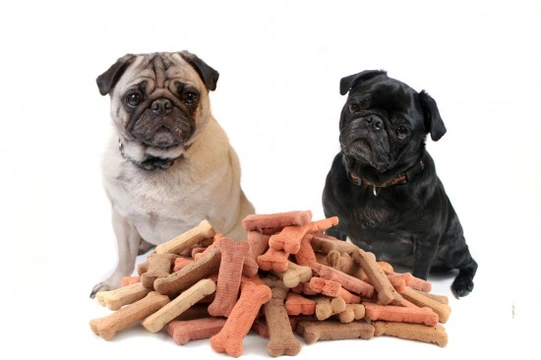
Dog Not Eating Treats? Reasons & Solutions
We all know that feeding too many treats and snacks to dogs can result in a whole host of problems, such as obesity, poor nutrition, dental problems and behavioural issues if treats are withheld! However, good treats, given sparingly and appropriately can provide a nice reward for your dog, and also form an essential part of training. Most of us will face a situation now and then when we need to use treats to help our dogs to learn something, or to bribe them into doing something that they are reluctant to do! The vast majority of dogs very much enjoy being given treats, and while all dogs will have their own marked preferences for different things and may turn their noses up at certain offerings, very few dogs simply don’t like treats at all!
However, it may happen on occasion that your dog will suddenly go off the idea of treats, or go off a certain treat that used to be their favourite, which can be rather confusing for their owners! While this issue can often be as simple as changing over to another treat that your dog prefers, it can be helpful to work out why your dog is turning their nose up at the treats that you offer them in the first place, in order to get a better understanding of what is going on.
Read on to learn more about some of the potential reasons behind why your dog might suddenly lost interest in treats.
Under the weather
The most common reason for a dog of any kind refusing food or something tasty that they usually enjoy is if they are feeling a little under the weather or are sickening for something. We are all familiar with the concept of going off our food it we don’t feel 100%, and it is the same for your dog!
If your dog is not showing any other obvious signs of ill health, give them a day or two to see if they pick back up again and enjoy their treats once more, or try offering them something different to rule out the possibility that they simply don’t like what you are offering them. If your dog refuses all treats and this goes on for more than a couple of days, pop your dog along to the vet to rule out an underlying health problem.
A change in composition
If your dog usually clamours for their favourite treats and still does so, but then seems to find them unpalatable or uninteresting when you do feed them some, there is always the chance that the manufacturers have changed the composition of their product, or made a minor change to the recipe that your dog does not agree with! The issue might be restricted to one batch and in the future, you will not run into the same problem, but if the recipe has genuinely changed and it is not to your dog’s tastes, you might need to find an alternative product that will float their boat!
Not hungry!
While dogs see treats as a reward and different to their usual meals, and will usually take a treat even if they have not long eaten, if your dog is absolutely full they may still refuse a treat! The same is true if you have been working with your dog for some time and they have simply had their fill of treats for one day or for that training session, and they have reached critical mass in terms of how many of them they want to eat!
Poor value: reward ratio
While treats can be really useful in trying to encourage your dog to do something that they are reluctant to or that they are unhappy with, this does rely on the value to reward ratio being good for your dog. Your dog will assess what you are offering to them, and decide if the reward, ie, the treat, is worth working for, and this will greatly depend on what it is that you are asking them to do.
If your dog reaches the conclusion that even your tasty treat is not sufficient to convince them to do what is being asked, they are likely to refuse your deal!
Stress threshold
Treats can be useful to encourage your dog to get through a stressful situation or to calm them if they are upset, but if your dog is too stressed or worried about something, they are likely to refuse treats as their stress threshold has been exceeded.
Back off from the situation and reassure your dog, calm them down to the point that they will accept the treat, and approach things a little more slowly.
Boredom
We are all familiar with the concept of having a favourite food that we eat at every available opportunity, but sooner or later if we have it too often, we reach critical mass and go right off it! The same can be true for your dog; too much access to treats, or too many offerings of the same treat every time can soon cause your dog to become bored of it, and not be as enthusiastic about it as they used to be.
Try to cut down on how often and how many treats you offer, and possibly change up the selection for something a little different to keep the reward fresh.



